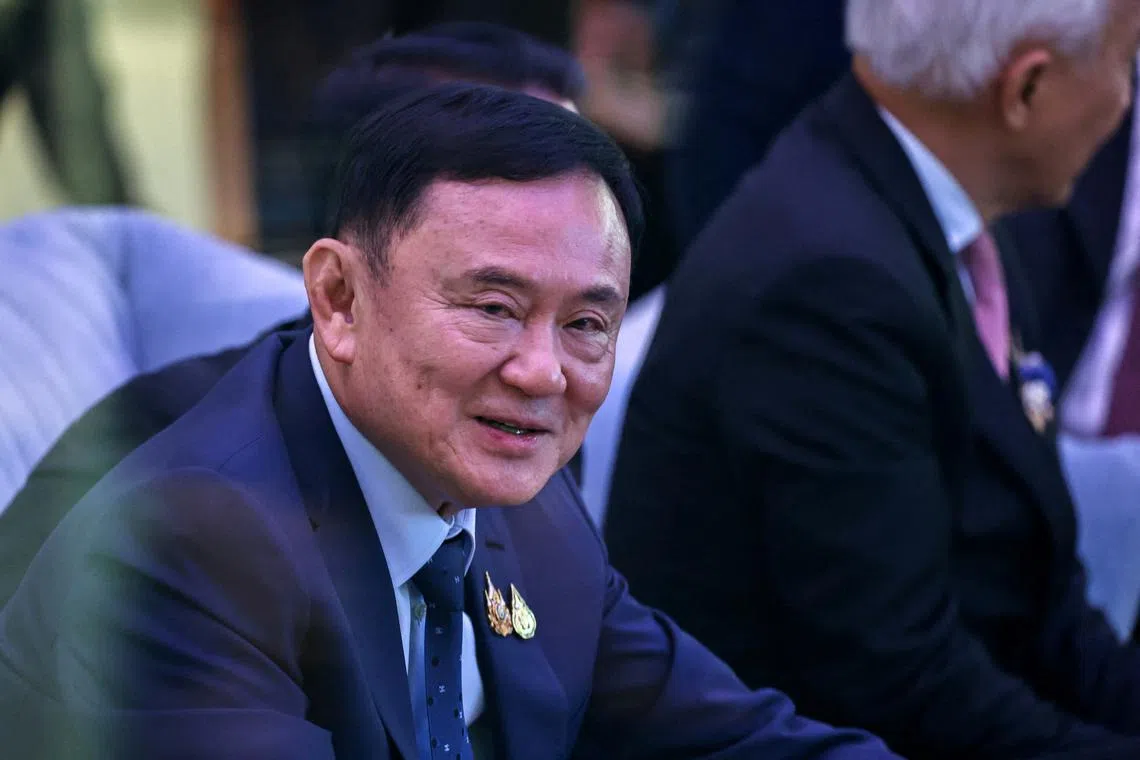Thai court grants ex-PM Thaksin permission to leave country
Sign up now: Get insights on Asia's fast-moving developments

Former Thai prime minister Thaksin Shinawatra was charged with lese-majeste in 2024 over comments made to a South Korean media outlet nine years ago and is set to stand trial in July.
PHOTO: REUTERS
Follow topic:
Bangkok – A Thai court on Jan 31 granted former prime minister Thaksin Shinawatra permission to leave the country, a court statement said, a rare exception for a defendant facing royal insult charges.
The 75-year-old billionaire was jailed for eight years on graft and abuse of power
In 2024, he was charged with lese-majeste over comments made to a South Korean media outlet nine years ago and is set to stand trial in July.
According to Thai law, defendants facing trial must remain in the country unless granted special permission by a court.
On Jan 31, a court decided to allow him to leave, citing “the benefits of international relations” as a reason for his temporary departure, though it did not elaborate on the purpose of the trip.
In December, Malaysian Prime Minister Anwar Ibrahim appointed Thaksin as his Asean adviser as he took the chair of South-east Asia’s regional bloc in 2025.
Although Thaksin has previously said he would not be involved in politics, he remains active, including in campaigning for his former party Pheu Thai.
“The court has considered and allowed the defendant to leave the kingdom between July 2 to 3, which does not affect the trial,” the court statement said.
Thaksin must report to the authorities within three days of his return.
Thailand has some of the world’s strictest lese-majeste laws, with any criticism of King Maha Vajiralongkorn or his immediate family punishable by up to 15 years in prison.
Critics and rights groups say the law is abused to stifle legitimate debate. AFP

